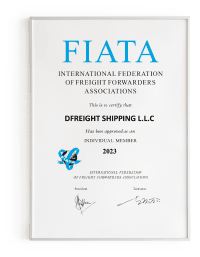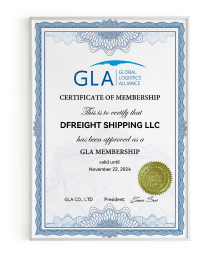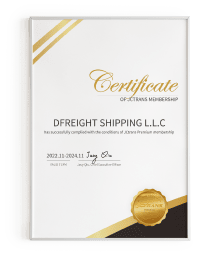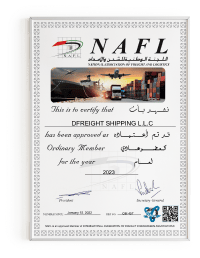Air Freight to South Africa
Air Freight to South Africa
Fast, Reliable, and Efficient Air Freight to/from South Africa
DFreight Air Freight Service is your top choice for swift and dependable air cargo shipping to/from South Africa. For a variety of commodities, including perishable goods, healthcare supplies, electronics, machinery, or anything that demands fast delivery from South Africa to the UAE and vice versa, we’ve got you covered. With years of expertise, comprehensive solutions, a commitment to on-time delivery, cutting-edge technology, top-notch security, competitive pricing, and a global reach, we’re here to make your airfreight experience seamless and worry-free. Trust DFreight for excellence in air shipping and submit your inquiry right away to receive the best competitive prices for your air cargo to/from South Africa.

South Africa Exports and
Imports
The top exports of South Africa are Platinum, Gold, Iron Ore, Diamonds, and Coal Briquettes, exporting mostly to China, United States, Germany, United Kingdom, and India.
The top imports of South Africa are Refined Petroleum, Crude Petroleum, Motor vehicles; parts and accessories, Cars, and Broadcasting Equipment, importing mostly from China, Germany, India, United States, and Saudi Arabia.
Market Update
According to OEC, in 2021, South Africa was the number 31 economy in the world in terms of GDP, the number 34 in total exports, the number 43 in total imports, the number 85 economy in terms of GDP per capita and the number 59 most complex economy according to the Economic Complexity Index.
South Africa exported US$4.45 Billion during 2021 to the United Arab Emirates and imported US$1.46 Billion during 2021 from the UAE, according to the Trading Economics database.
South Africa–UAE freight market is expected to grow significantly in the coming years, with trade expected to increase by 2023. The UAE and South Africa have a strong trade partnership with each other, evident in its strong volumes of air cargo, ocean cargo, warehousing and express services. The market will benefit from the growing number of infrastructure and investments made by both South Africa and the UAE, which will foster and facilitate trade between them. Both countries have formed several bilateral agreements that will see better integration of their supply chains and further fostering of this strong relationship.
Banned Products
Banned products for importing into South Africa include anything containing asbestos, counterfeit goods, alcohol, and any form of pornographic material. South Africa also has restrictions on the import of items that may pose a risk to public health and safety, including certain medicines, medical technology, and hazardous chemicals. South Africa also prohibits the importation of certain animals and plant species that are considered invasive and pose a threat to native species.


Documents & Customs Clearance
One thing to take into account when exporting cargo internationally is customs clearance. You must be aware of the customs clearance regulations of the destination countries when shipping cargo from South Africa.
The following documentation must be given to local customs for international shipments by the supplier, consignee, or intermediary:
– A commercial invoice
– A packing list
– A bill of lading
– A certificate of origin
Shipping Different Commodities from/to South Africa
An Ultimate Guide to Shipping Generators and Power Systems
What Is Bulk Cargo?
How to Import or Export Cars in UAE: Shipping Guideline
Major Air Cargo Port
-
Italy
Germany
United Kingdom
Netherlands
France
Turkey
Spain
Denmark
Switzerland
Czech Republic
Hungary
Poland
Romania
Greece
Portugal
Slovakia
Sweden
Ireland
-
China
India
Taiwan
Hong Kong
Japan
Singapore
South Korea
Malaysia
Qatar
Indonesia
Saudi Arabia
Thailand
Bangladesh
Lebanon
Kuwait
-
Uganda
Congo
Egypt
Rwanda
Kenya
South Africa
Morocco
Algeria
-
-
-


We consolidate cargo from Germany, Belgium, France, Luxembourg, and nearby cities to Amsterdam, then ship it directly to Dubai.
Certificates & Memberships




- Stress-Free Documentation We simplify the paperwork process, making it easy for you to focus on what matters most – your shipment.
- Clear Cost Breakdown Our pricing is straightforward, with a detailed breakdown so you can see exactly where your money goes.
- Dedicated Support We’re just a click away. Your dedicated support team is there to address any questions or concerns promptly.
- Live Shipment Tracking Easily follow your ocean and air freight shipments 24/7 with real-time tracking. No more unexpected delays.
Ship Your Cargo with Ease
Get Started Today!
Why Choose Consolidated Air Freight?
Guaranteed Space
Secure your cargo space without worries.
Reliable Scheduling
Count on our reliable predictive schedules
Nationwide Collections
We pick up your cargo throughout Benelux and Germany
Regional Trucking
Benefit from local trucking within Europe and GCC
Competitive Pricing
Enjoy market-competitive air freight rates
Fast Delivery
Rapid and secure shipping for time-sensitive items
Regional Trucking
Benefit from local trucking within Europe and GCC
Competitive Pricing
Enjoy market-competitive air freight rates
Fast Delivery
Rapid and secure shipping for time-sensitive items
Guaranteed Space
Secure your cargo space without worries.
Reliable Scheduling
Count on our reliable predictive schedules
Nationwide Collections
We pick up your cargo throughout Benelux and Germany
Any Questions?
Reach out to us, and our experts will work with you to discover the tailored solution you need.





 Germany
Germany Netherlands
Netherlands Luxemburg
Luxemburg Belgium
Belgium





